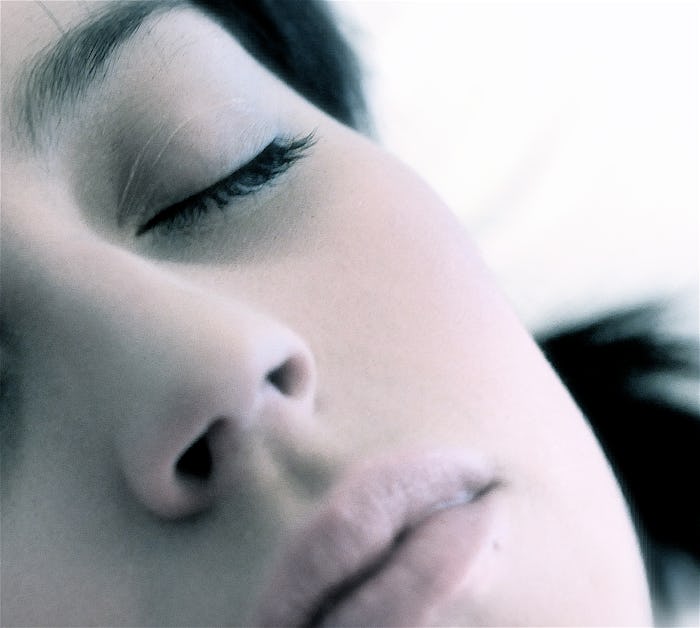Life
7 Hacks To Help Parents Who Are Light Sleepers Doze Off
So the kids are finally in bed, and you’re more than ready to turn in for the night. But as soon as your head hits the pillow, you notice a neighbor’s blaring TV, or a sporadic faucet drip. In no time, you realize that it’s going to be another one of those nights when sleep is hard to come by. But it doesn’t have to be this way, because there are hacks to help parents who are light sleepers doze off. Because parenting is a more than full-time job, and you really need your shut-eye.
What makes some people light sleepers, anyway? “It might be some sort of genetics, or it might be that some people have a greater degree of arousal over a 24-hour cycle,” David Neubauer, an assistant professor of psychiatry and behavioral sciences and associate director of Johns Hopkins Sleep Disorders Center, told the Huffington Post. Whether you happen to have a genetic predisposition to light sleeping, or you simply overdid your coffee intake for the day, there are ways to work around it and sleep more soundly. You may need to adjust your habits or even your bedroom’s set up a little, but getting a good night’s sleep is worth most any change.
1Use White Noise
If every little noise makes you jump, then some soothing sounds might be a good idea. As Buzzfeed advises, you can "turn on white noise if you’re a light sleeper, or turn on a fan." If you don't have a white noise machine, there are plenty of white noise apps that can help drown out disruptive sounds.
Try: Marpac Natural White Noise Sound Machine, $49.95, Amazon
2Make Your Bedroom Cool And Dark
The environment in your bedroom can also help you sleep better. As noted in Everyday Health, sleeping in a quiet, dark, and cool space may "help foster deeper, heavier sleep." This might be a good time to invest in light blocking curtains.
Try: Nicetown Blackout Curtains, $35.95, Amazon
3Try To Wait Out Your Baby's Fussiness
If your kid is still very young, then sleep is an even more precious commodity. The Mayo Clinic advises new parents practice watchful waiting, because "sometimes, middle-of-the-night fussing or crying is simply a sign that your baby is settling down." Unless you suspect your baby is hungry or uncomfortable, you can wait a little to see what happens. If your suspicions are correct, you both might drop off to sleep in no time.
4Reconsider Co-Sleeping
If your toddler creeps into your bed and kicks you awake throughout the night, then you may want to get her to sleep independently. Putting a positive spin on the situation is a good bet. As National Sleep Foundation spokeswoman Jodi Mindell told WebM, creatively reframing the situation may help you get the rest you desperately need.
5Savor Warm Drinks
Most people can't go from daytime mode to dead asleep without a transition period. A calming ritual involving a soothing warm drink can help. As sleep expert Helene Emsellem said on CNN, "some teas have mild soporific effects." Chamomile is a classic choice, but anything that's free from caffeine can do the trick.
Try: Stash Tea Chamomile Herbal Tea, $15.95, Amazon
6Sniff Lavender
Enjoying some soothing scents before bed may improve your sleep. In a study cited by the National Sleep Foundation, researchers found that, "those who sniffed lavender before bed had more deep sleep and felt more vigorous in the morning." While you may not conk out just because you sniffed some essential oils, nice scents may help improve your overall bedtime routine.
Try: Majestic Pure Lavender Essential Oil, $10.50, Amazon
7Get Natural Light
It turns out what you do during the day can have a tremendous effect on your ability to drop off at night. "The light we get from being outside on a summer day can be a thousand times brighter than we’re ever likely to experience indoors,” melatonin researcher Russel J. Reiter wrote for the National Institutes of Health. “For this reason, it’s important that people who work indoors get outside periodically, and moreover that we all try to sleep in total darkness." Catching some rays during the day might help you sleep more heavily at night.
